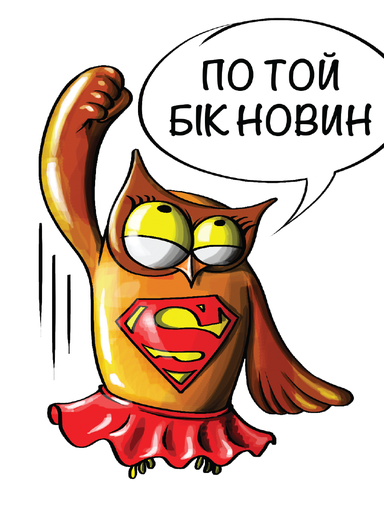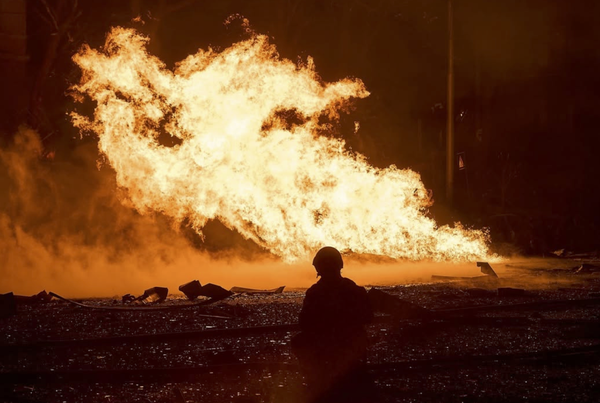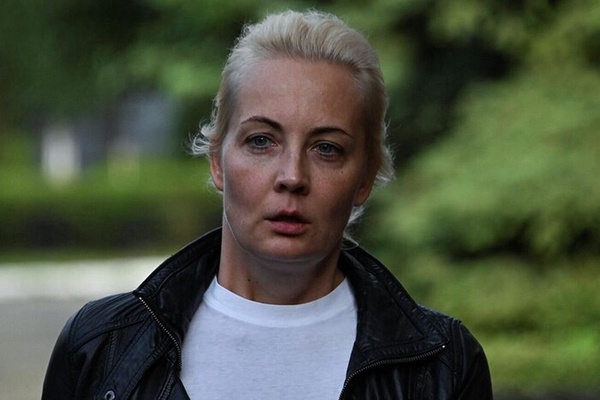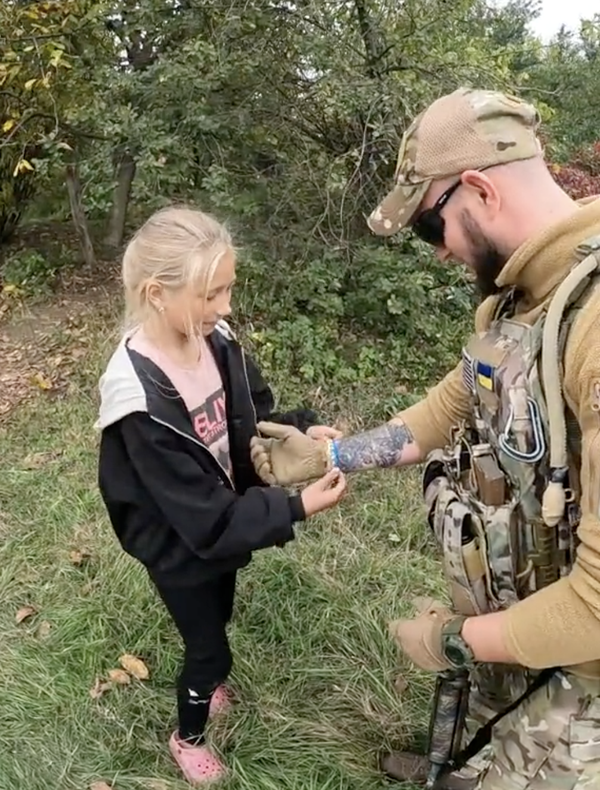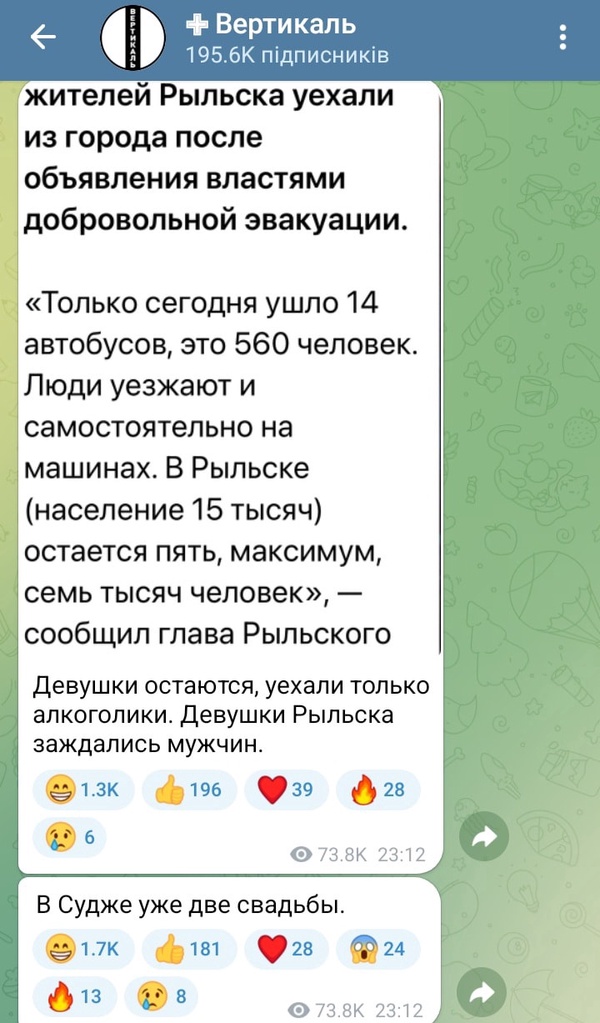Russian propagandists spread fake list of 'foreign mercenaries' in Ukraine
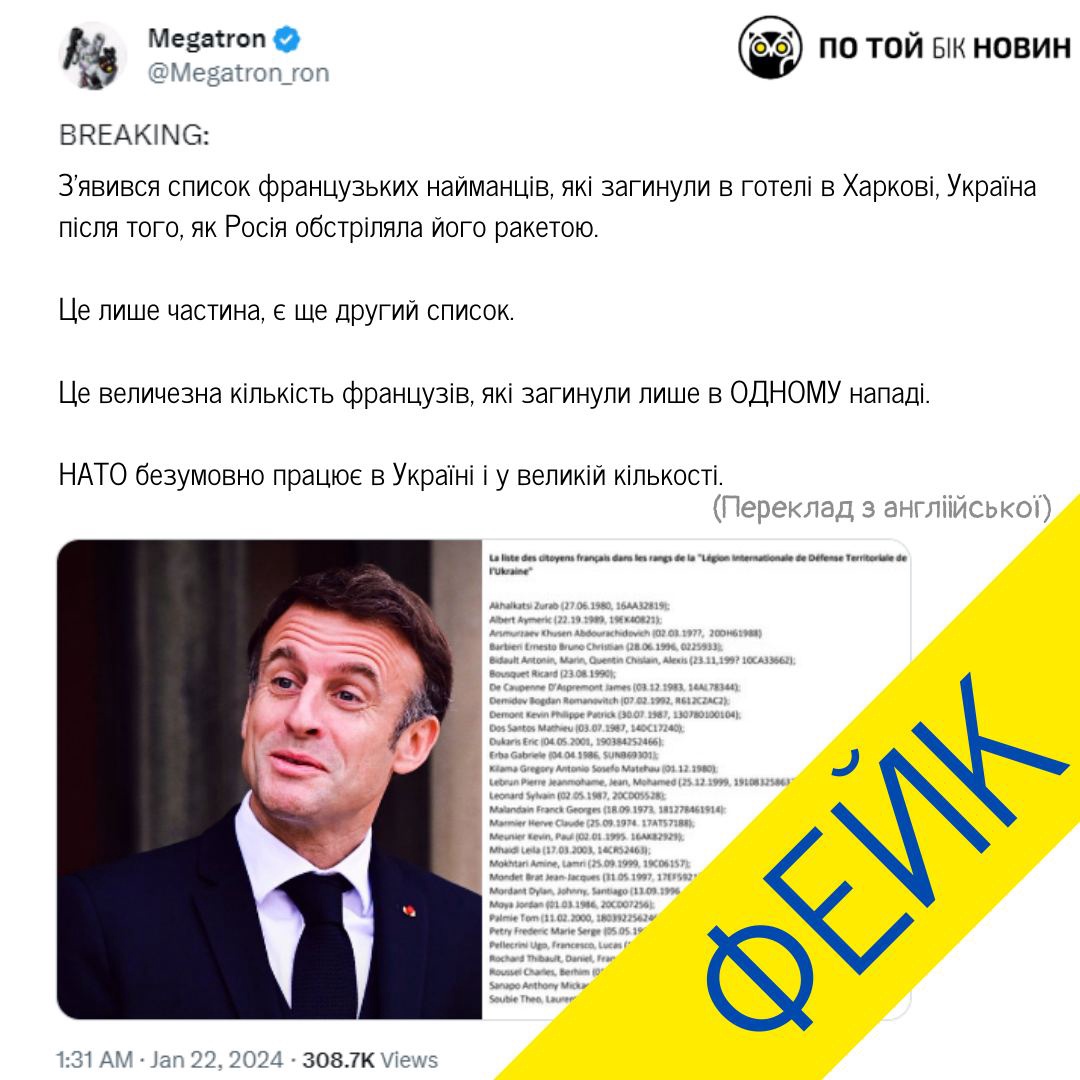
So-called lists circulating on social media and propagated by the kremlin and western media outlets allegedly detailing French soldiers killed in the rocket attack on Kharkiv hotels, serve as a tactic for Russian propagandists to promote the notion of “foreign mercenaries” in Ukraine.

Attempting to justify missile strikes on civilian targets, including the Kharkiv Palace and Park Hotel, russian forces claim to have eliminated “200 mercenaries.”
Ukraine’s Defense Intelligence dismissed these assertions by the russian defense ministry as nonsense.
According to Ukraine’s Ministry of Internal Affairs, the rocket attack on Kharkiv’s Park Hotel on January 10 left 13 civilians wounded, including a Turkish and a Georgian citizen, both of whom were representatives of the Turkish media. They were all civilians, and there were no military personnel in the hotel.
“There were no military mercenaries, no military were here. This is a civilian facility, a civilian infrastructure. We have always accommodated our friends and guests who sojourned in Kharkiv, and foreign delegations too,” said Mayor Ihor Terekhov.
However, the russians continued to promote the narrative of dead “French mercenaries” to justify their assaults on civilian infrastructure. On January 16, another russian missile attack targeted the city centre, damaging a private hospital and nearby residential buildings, resulting in 17 more injured individuals.
Then, the kremlin’s trash sites spread their ministry of war’s claim of 70 alleged “mercenaries” killed in combat, even as some reports confused the dates of the attacks.
So, more substantial arguments were needed to support their assertions.
So it began. Social media and the kremlin media began publishing alleged details about supposed mercenaries who died in Ukraine. First, TASS enlisted propagandist alexander artamonov to spread the narrative of “French artillerymen” allegedly killed on January 16 in Kharkiv.
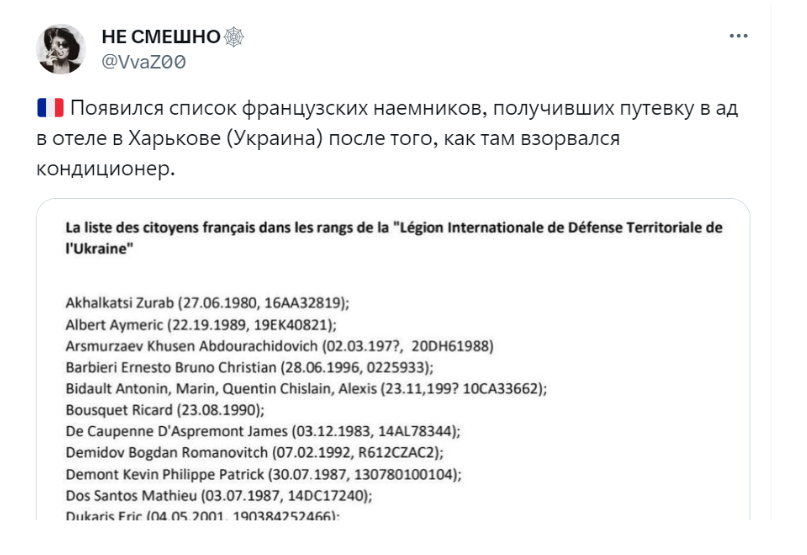
However, fact-checkers in Lithuania analyzed artamonov’s videos and found no truth in them.
Just two days later, the names of the alleged foreign victims surfaced, flooding russian and foreign social media accounts on the X network with lists bearing several dozen names (screen 2).
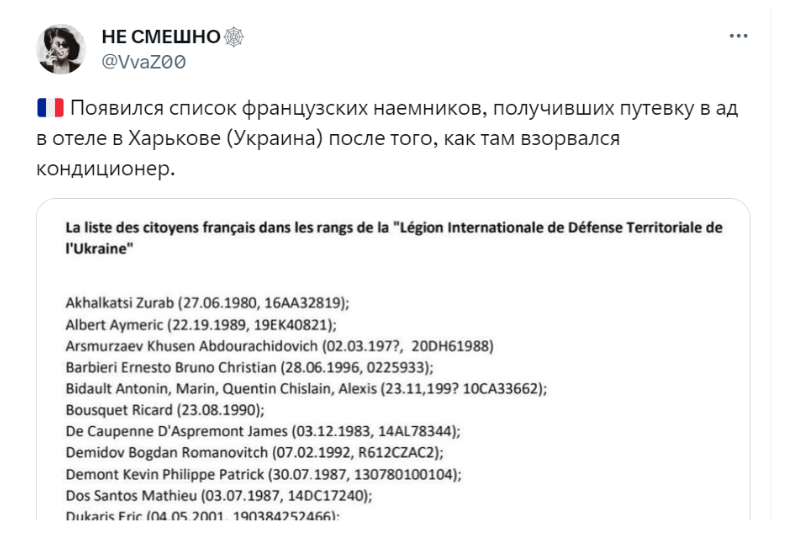
The posts sharing the lists garnered hundreds and thousands of reposts.
Interestingly, many of these accounts refer to the alleged deaths in the hotel, despite no hotel bombings occurring on January 16.
Across different publications in different languages, many discrepancies emerged, such as mismatched dates of birth (screen 3).
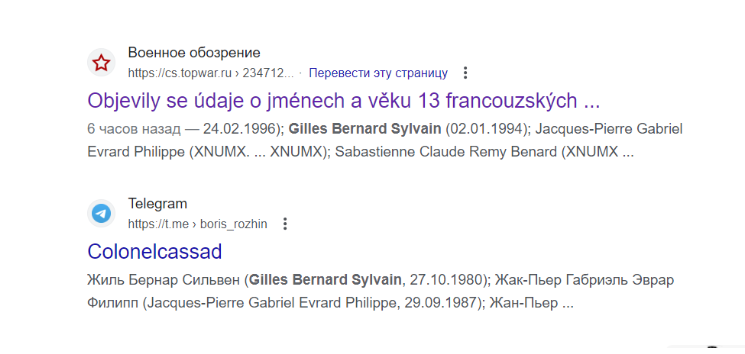
In some versions, multiple dates of birth are listed, suggesting that the editing was done hastily, or the corrections were delayed (screen 4).
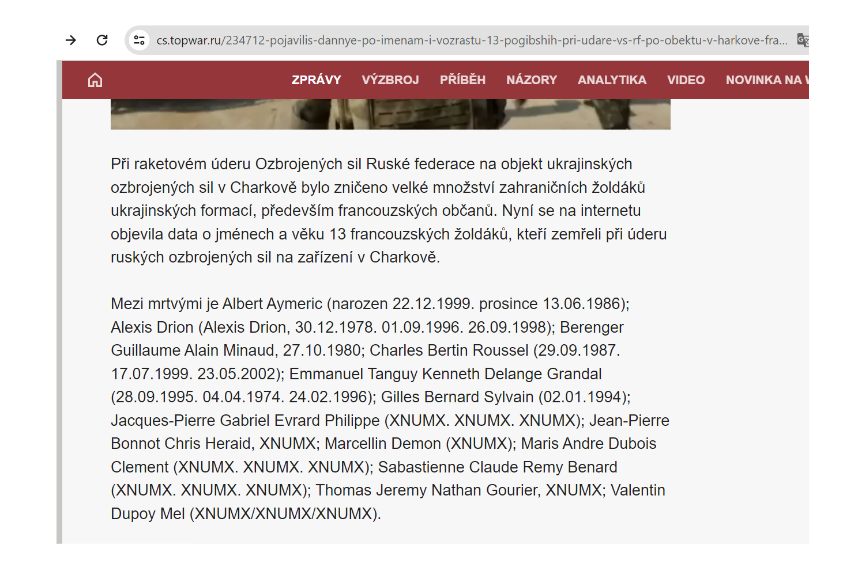
And then there was the main list, comprising dozens of surnames (screen 5).
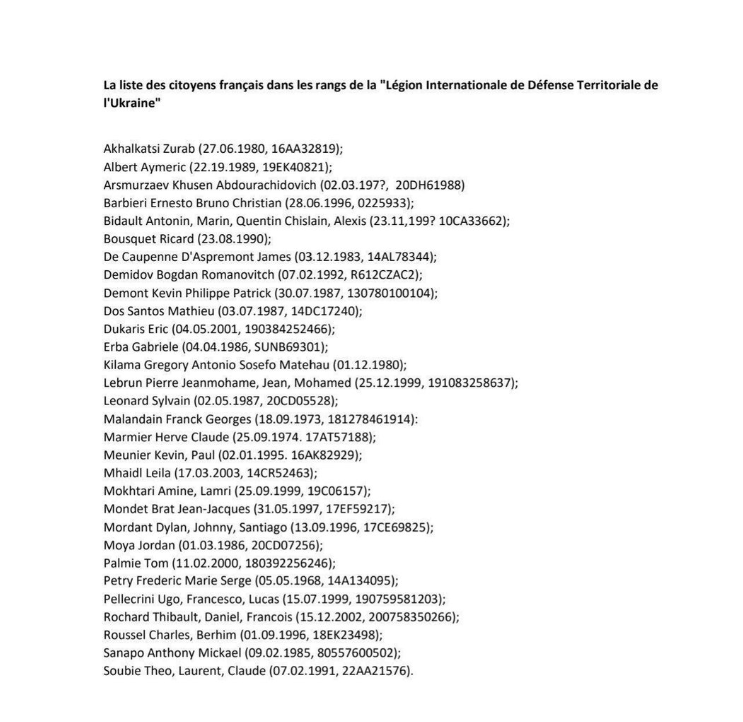
This is not the list of the deceased. It’s a segment of a list that russian propagandists initially published on the Ribar Telegram channel back in April 2022.
Back then, they presented this dataset as a list of “foreign mercenaries in Ukraine as of 2021,” sharing it within their narrow circle of propagandists. Now, they decided to use the content again.
A huge error like Albert Aymeric’s date of birth, listed as 22.19.1989 in both the Ribar and the “list of the dead,” speaks volumes about the quality of this fake. It’s hard to fathom a month numbered “19,” but it’s easy to imagine where they sourced their content (screen 6).
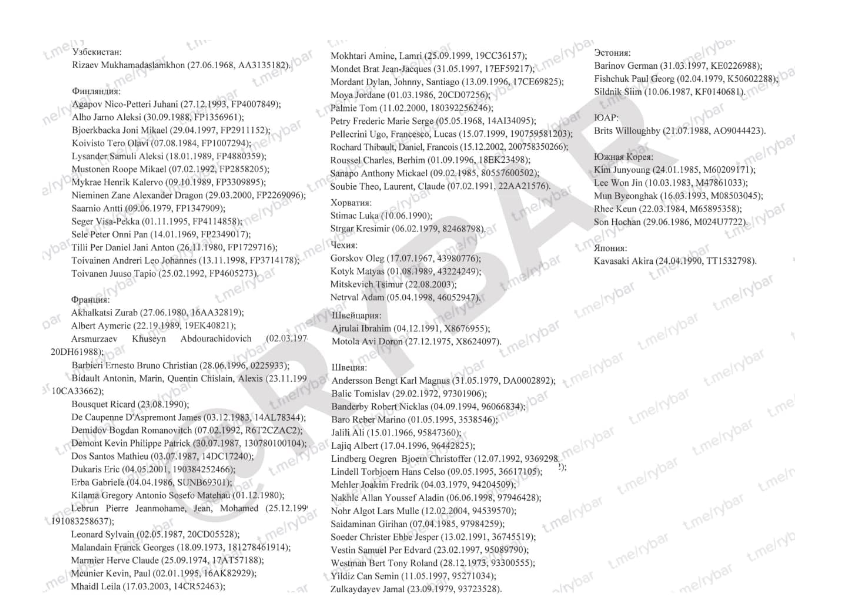
Let’s not forget one important thing: russian propagandists habitually produce fakes about alleged foreign mercenaries in Ukraine to promote the narrative that they’re not fighting for Ukraine, but for NATO ![]()
Prepared by Pavlo Novyk.

